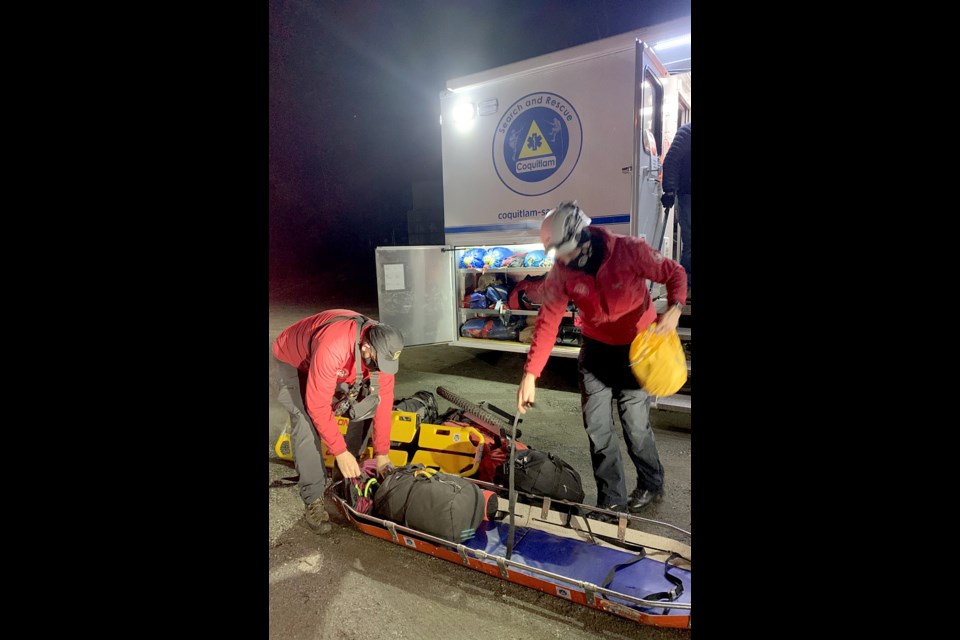A Coquitlam resident lost his job last week as the CEO of the BC Search and Rescue Association (BCSARA).
Dwight Yochim said his dismissal came after a difficult past few years under the provincial government’s new Emergency Management and Climate Readiness ministry (EMCR).
In a scathing letter to Premier David Eby — and signed by Search and Rescue presidents and managers from Whistler, Squamish, Houston, Fort St. James and Prince Rupert, and forwarded to MLAs and the media — Yochim wrote about the alleged “misuse of authority, bullying and other issues” with the overseeing government staff.
Most concerning, Yochim claimed, is that lives are at risk because of EMCR’s inactions and toxic relationship with Search and Rescue teams.
Speaking with the Tri-City News on Tuesday, Jan. 9, Yochim said he hopes the letter represents the views of the 3,400 Search and Rescue volunteers working in B.C.
And he hopes organizational changes will be made so that BCSARA can work as “true equals” with EMCR or, alternatively, it follows a New Zealand model, which is entirely run by volunteers.
Currently, Yochim charged, EMCR “is a ministry of no. You have to keep pushing for what you need and want…. Our members are tired of pushing because the ministry is not open-minded. As a result, we’re losing members and are having trouble recruiting.”
'It's just extreme'
Yochim said while there have “always been challenges” with bureaucracy, things looked up when BCSARA got sustainable funding from the province about three years ago.
He said the first contribution agreement was straight-forward for the non-profit organization; however, for this current fiscal year, the government “upped the ante” when it formed the EMCR, Yochim said, and demanded more paperwork.
Yochim said he’s worked with non-profits in the past and “never had a funder act like this before."
"It’s just extreme," he added.
"They’ve really escalated their disdain and lack of respect toward the Search and Rescue staff and community…. I really don’t know why they have reacted the way they are. It’s been a bizarre year of unrealistic requests."
In the letter to Eby, Yochim alleges the following points against EMCR staff and trainers:
- they ignored and did not disclose significant safety concerns found in a training audit
- they have a disrespectful attitude toward Search and Rescue members
- they ignore advances in technology that can save lives, including the use of video scanning software, drones and Artemis (a device that turns a cell phone into a beacon)
- they bully, intimate and threaten
- they put a moratorium on new capabilities
- they use sexist behaviours that are not taken seriously
“On average, 1,000 lives are saved every year and it is often said that search and rescue in B.C. is successful despite EMCR’s involvement,” Yochim wrote in the letter.
“In fact, in its current state, Search and Rescue would be better off without EMCR’s involvement.”
Coquitlam SAR backing
Nick Zupan, president of Coquitlam Search and Rescue, told the Tri-City News on Wednesday that while its board can't speak to the specific matters addressed by Yochim and the SAR presidents and managers in the letter, "we are deeply concerned about the nature of these issues."
Ministry reaction
In response to the letter, George Heyman, acting minister of Emergency Management and Climate Readiness and minister of Environment and Climate Change Strategy, told the Tri-City News in an emailed statement that “Search and Rescue volunteers play a critical role in providing life-saving services across our entire province. We respect and appreciate their training, knowledge and dedication.”
“Whenever we hear of a rescue British Columbians are amazed and relieved that we have community members who volunteer their energy and skills to SAR groups to keep the rest of us safe.
“The concerns raised in this letter are very troubling, and I intend to meet with the BC Search and Rescue Association this month to discuss and address these concerns.
“Additionally, we are actively working to strengthen our collaboration with the BC Ground Search and Rescue Groups to ensure they have all the support they need in their life-saving efforts. Together I am confident that we can re-establish the trust and effective collaborative relationships that British Columbians need and expect.”





